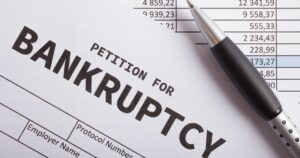If you’re considering bankruptcy, the first thing on your mind is the benefits. Bankruptcy has its pros and cons, just like any other financial decision. Therefore, you should understand them before assuming it will help you or not.
Bankruptcy is a powerful financial tool that helps you get back into control of your finances. Therefore, if you find yourself drowning in debts, unable to even make minimum payments, you may be able to file for bankruptcy.
Bankruptcy comes in various types, depending on your financial situation and whether you are filing for personal finances or if it is for a business.
Yes, bankruptcy does stop creditor harassment, and it can help you gain control of your finances. But it does not erase or take care of everything. Therefore, you first need to know how it helps you and how it cannot help you.
How Can Bankruptcy Help Me?
When struggling to get out from under debt, you look toward bankruptcy as a solution. You have two primary options as a consumer: Chapter 7 and Chapter 13. Each has pros and cons, and they work differently from one another.
Each type will dictate how your debts are handled and how long you must wait before everything is discharged.
Some ways bankruptcy can help you include:
Creditor Harassment, Calls, Letters, and Collection Attempts Stop Immediately
One item you can check off your list is creditor harassment. The moment you file your bankruptcy paperwork, the court has an automatic stay rule. This rule means no creditor can harass, garnish wages, file a lawsuit, or make any other attempt to collect on your debts. However, you must name those creditors and debts in your bankruptcy proceeding to get the protection.
One debt that is not protected is any unpaid child support payments or payments for restitution to the court after a criminal conviction. These debts you must keep paying, and they can continue aggressive collection tactics if you do not.
Prevent Your House’s Foreclosure or Rental Eviction
Part of the automatic stay also prevents anyone from kicking you out of your home – whether you rent or own.
If the bank threatens you with foreclosure, they must stop their foreclosure or repossession process. However, filing for bankruptcy doesn’t guarantee you will keep your home either. While they cannot foreclose, you are required to bring the payments current to keep your home after bankruptcy if you file for Chapter 7. If you opt for Chapter 13, then you can create a repayment plan to catch up on past due mortgage payments and keep the home.
If you are renting, your landlord cannot evict you while you are filing for bankruptcy. Any eviction process currently underway stops – but only temporarily. If you cannot afford the rent and your landlord has already initiated the eviction process, then you will most likely lose your residence after your bankruptcy is over.
Remove Credit Card and Unsecured Debts
One of the biggest helps you receive from bankruptcy comes from erasing or correcting unsecured debt, including credit cards and medical bills. However, the type of bankruptcy you select determines how these are wiped out. If you file for Chapter 7, then you will have your unsecured debts completely discharged in three to four months – which means you will never pay on them again.
If you file for Chapter 13 bankruptcy, you create a repayment plan. This means you still pay on these unsecured debts as part of the court-ordered repayment. And once the payment plan completes (usually in three to five years), you will no longer owe on those debts.
Clears Secured Debts – but You Lose the Property
You can clear out secured debts, too, which are those you have collateral against. For example, your car or mortgage could be erased, but you would lose the vehicle and home. If you do not want to lose them, you need to set up payments and secure financing for those loans.
How Bankruptcy Cannot Help You
Bankruptcy is powerful, but it has limitations. It will not erase all debt woes, and in some cases, bankruptcy might not be a good option if you have debts that do not qualify for discharge.
You Cannot Eliminate Child Support or Alimony Payments
No form of bankruptcy will eliminate child support or alimony. Therefore, these court-ordered payments must continue, and the court can take collection action against you if you ignore them.
Student Loans Are Not Discharged
Even though private loans are discharged in bankruptcy, you will owe all student loans that you acquire for your college education, including any federal loans. The only way you can discharge them in bankruptcy is if you can show undue hardship and that there is no feasible way for you to pay off those debts. You would have to show you cannot pay them now nor would you be able to pay in the future. Very rarely will a person successfully discharge these debts.
Tax Debts Remain
You typically keep all state and federal tax debts, regardless of whether you can pay or not. However, there are ways your attorney can have them discharged, especially if they are much older, unpaid tax debts.
Court-Ordered Settlements
Any settlements issued by the court (such as damages in a personal injury case), fines and penalties for a criminal conviction, or debts ordered by the court will not discharge. You must pay these as part of your sentencing; therefore, failing to do so could result in further criminal or civil penalties.
Contact a Bankruptcy Attorney Today
The best way to see whether bankruptcy can help you, and which type of bankruptcy is best for your situation, is to hire an attorney. A bankruptcy attorney can guide you through the process of filing for bankruptcy, and we can let you know during your consultation if we think bankruptcy is your best choice.
Schedule a no-obligation consultation today.

